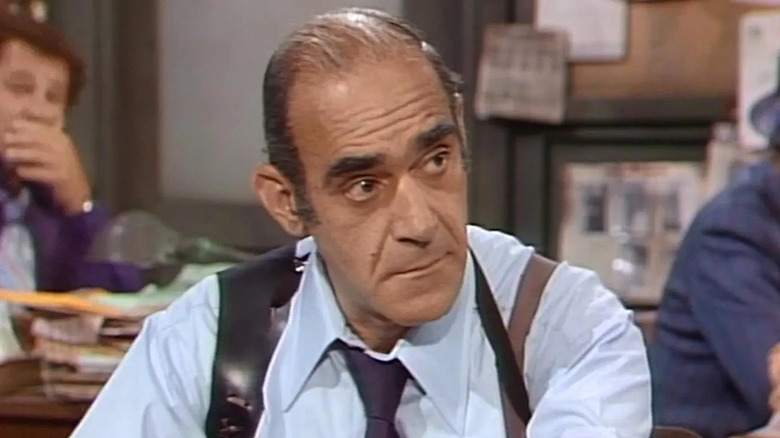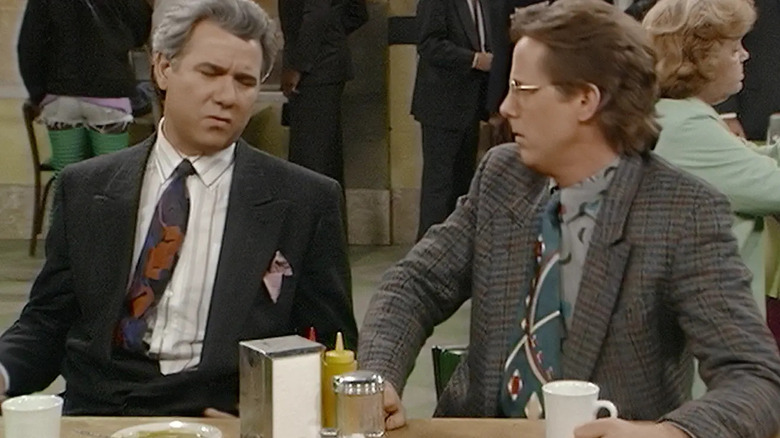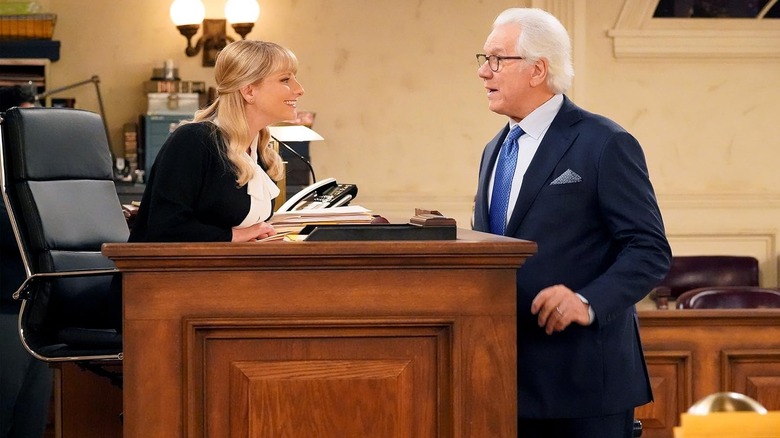
Television sitcoms and dramas alike tend to take place in similar, familiar settings. There’s no lack of shows set in hospitals, police stations, and courtrooms (leaving aside any more low-key shows that are family-driven and thus take place in someone’s home), and not just among current TV series. But for a very long time, it was much more traditional that, say, a cop show would have to be a drama; how could a show about the people who arrest criminals and attempt to gain justice for whatever crimes have been committed be funny? To be fair, that question has once again become relevant of late and is directly related to why “Brooklyn Nine-Nine” called it a day in 2021.
For a long time, something similar could be said of courtroom shows for the same reasons. Can you really crack jokes on a series that revolves around accused criminals standing trial? Perhaps it’s fitting, then, that one groundbreaking comedy set in one of these not-funny-seeming settings led to another groundbreaking comedy in another of those settings. To wit: the mid-1980s NBC sitcom “Night Court” was always a moderate ratings success and a delightfully loopy show that managed to be funny while being legally minded, and it was only able to exist thanks to another loopy show in its own right: ABC’s Emmy-winning cop sitcom “Barney Miller.”
Barney Miller (and an ill-fated sitcom) led to Night Court
“Barney Miller,” created by Danny Arnold, focused on the cops and detectives of the 12th Precinct of the New York Police Department located in Greenwich Village. Seeing as almost every episode of the show’s eight seasons took place within the confines of the squad room of the precinct (akin to how later series like “Cheers” would set entire episodes, including its full first season, within the titular bar only), the show was as much about the people working the beat as about the random oddballs they would drag in for processing. Fans of more modern comedies like “Brooklyn Nine-Nine” would feel right at home with “Barney Miller,” even if the latter show was a bit more grounded.
In the era of just a few channels, “Barney Miller” was a solidly performing series for ABC despite never being the single biggest show on the network. Seeing as it premiered 50 years ago, it feels like a fascinating glimpse into a totally different era, and it’s no surprise that much of the “Barney Miller” cast has since passed on. (It wasn’t that long ago that genre favorite Ron Glass died, for instance.) The series was popular enough to inspire one failed spin-off, “Fish,” about the eponymous detective portrayed by the lovably irascible Abe Vigoda. So, naturally, the idea that one of its writers, Reinhold Weege, would attempt to parlay the show’s success into creating something of his own made perfect sense.
Timing being what it is, Weege wouldn’t get “Night Court” off the ground until after the conclusion of “Barney Miller” in 1982. Before that series ended, he’d actually tried his hand at creating another series, the ill-fated CBS sitcom “Park Place,” with character actor Harold Gould as the lead. Though you may not have heard of this series, seeing as it aired just four episodes in the spring of 1981, the general premise may well sound familiar. “Park Place,” despite the tony name, was set in a New York legal-aid clinic, balancing between the idealistic lawyers working there, their sage leader, and the zany clients they would have to take on. In some ways, it feels like the inverse of “Night Court,” which would also focus on the eccentric people going to face judgment from the Mel Torme- and magic-loving judge Harry Stone (Harry Anderson).
Night Court wound up becoming bigger than Barney Miller in several ways
Although “Night Court” was never the biggest sitcom on NBC in the 1980s, it had the benefit of playing behind “Cheers” for a number of seasons; fans of that show no doubt recognized Anderson from his recurring role as Harry the Hat, a charming con artist who would frequently fool the barflies and Sam Malone.
“Night Court” may not have been as unstoppable a force, but it did end up being somewhat bigger than “Barney Miller” in a few key ways. While “Barney Miller” did win the Best Comedy Series Emmy for its final season and “Night Court” was only ever nominated, the latter series netted actor John Larroquette four consecutive Emmys for Best Supporting Actor, to the point where he literally removed his name from contention after the fourth win. Likewise, “Night Court” ran for nine seasons and nearly 200 episodes — feats that “Barney Miller” was unable to top.
In its own way, the show is a product of its time (having concluded in 1992), with most of the “Night Court” cast having sadly passed away since, Anderson included. (It’s equally sad that Weege, who died in 2012, never created another series of note after leaving “Night Court” once its sixth season ended.) Not too long ago, NBC went back to the well to revive “Night Court” in the 2020s. The sequel series is now in its third season, with Melissa Rauch of “The Big Bang Theory” fame starring as Stone’s daughter and Larroquette reprising his role as the loutish Dan Fielding. Though the show’s revival has gone well relative to other modern sitcom reboots, it’s worth reminding yourself that this series and its predecessor can only exist because “Barney Miller” set a template for its existence 50 years ago.




Leave a Reply